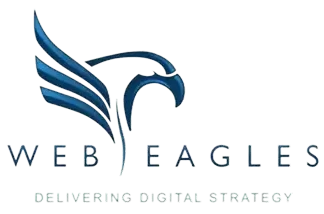What is technical SEO, and why is it important?
Search engine optimisation (SEO) involves much more than just keyword research and content creation. SEO also requires backend tasks not visible to the end user. This is referred to as ‘technical SEO’ and is the foundation upon which SEO strategies are built.
So, what is technical SEO?
Technical SEO involves maintaining and updating your site to allow search engines to crawl it more effectively. Search engines, such as Google and Bing, send ‘crawlers’ to your site to analyse HTML code, JavaScript, performance, structure and so much more, letting them know what your site is about, and whether or not it is informative.
Technical SEO usually starts with an SEO audit, which includes information and recommendations such as improving site speed, making your site more discoverable, and fixing the architecture. Simply, technical SEO refers to what search engines see, rather than what your website visitors see.
Why is technical SEO important?
Google looks at your website differently than a user does. Technical SEO is the foundation of your SEO strategy and ensures that search engines can properly index and navigate your site. The benefits of investing in a technical SEO strategy include:
- Increased website visibility
- Higher rankings
- Improved page speed
- Identifying site structure issues
- Removing duplicate content
- Enhancing user experience
Being able to reap the benefits of technical SEO involves a lot of back-end work, such as conducting a full website audit. At WebEagles, we have the expertise and tools to conduct a comprehensive website audit, helping us to identify opportunities and ways to improve our clients’ sites. Some of the key elements you should look out for when auditing your website include:
- Checking your site speed – Search engines use your site speed as a ranking factor, this is because your site speed directly affects the end-user. The slower your site speed, the more likely they are to bounce.
- Ensuring your site is discoverable for search engines – Submitting an updated sitemap to search engines is a great way to ensure that all your pages are discoverable by its crawlers.
- Ensuring your site is crawlable for search engines – Similar to being discoverable, your site needs to be crawlable. This means utilising XML sitemaps and robots.txt files correctly, and using internal links in relevant pages, just to name a few.
- Seeing if your pages can be rendered – Search engines should be able to understand your content’s layout through your code, this applies to both desktop and mobile browsers.
- Removing dead landing pages – Pages with no content on them can harm your site and increase your bounce rate. It is important to identify and resolve 404 pages quickly.
- Removing duplicate content – Search engines penalise sites that have duplicate content. It is critical that most of your pages have unique content.
- Maintaining a consistent URL structure – A well-structured URL can make your site easier for visitors to use, navigate and share.
- Secure your site – Implementing the right security to your site is a top priority. It is important that your site adheres to the best security practices.
Modern SEO best practice requires a multi-pronged approach to keyword research, content, and technical SEO. At WebEagles, our deep understanding of websites means that we know how to drive customer traffic and to help you convert them to real sales leads. For more information, give us a call on 1300 123 808, and one of our digital marketing experts will be able to answer all of your questions.


